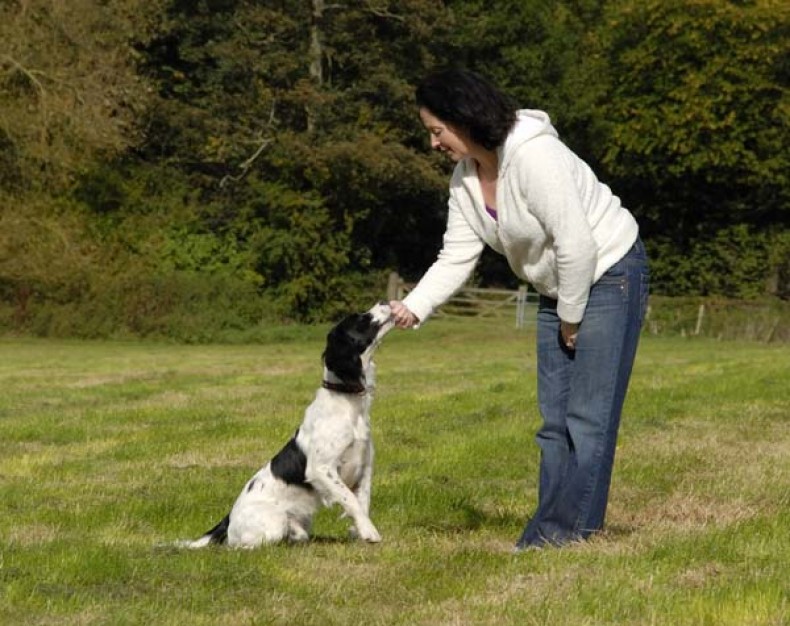Canine care
Proper dog training prevents behavior problems

Praise and treats help your dog learn good behavior.
Leash pulling, potty training issues, pet anxiety — these are just a few everyday challenges that trouble many pet owners. In fact, behavioral problems are cited in the list of top reasons dogs are put in shelters, according to the American Humane Association.
Dogs are always learning, whether you're intentionally teaching them or not. Teaching rules and using proper training techniques will prevent them from making up their own house rules and creating frustrating situations for you and your family.
To help dogs learn appropriate behavior, it's good to engage in some canine education. For example, if you are housebreaking your puppy it's important to know that a puppy's digestive tract works fast after being fed. In the early days of housebreaking they have "to go" pretty quickly (five to 30 minutes after eating). Also, many experts recommend taking puppies out to the same area each time to relieve themselves because that area's scent effectively works as a trigger.
Many owners have found working with a professional dog trainer on discipline issues is effective — for them as well as their dogs. "The goal of a good training program is to teach pet parents how to communicate effectively with their dogs," said Debbie McKnight, a training expert with PetSmart. "Positive, consistent communication helps create better relationships between dogs and their pet parents."
Most training classes are based on the effective principles of positive reinforcement. In the simplest terms, positive reinforcement means rewarding the dog for doing the behaviors you want, to get him or her to do those behaviors more often. If you decide to begin a training program, the Association of Pet Dog Trainers recommends that you:
- Have your dog wear the type of collar and leash specified by the trainer.
- Wear comfortable, flat, close-toed shoes and comfortable clothes that allow you to move easily.
- Make sure your pet relieves itself before class so he or she won't need to go during the training session.
- Forgo feeding or only feed a very light meal before training so that the dog will desire treats used as rewards.
North Carolina vaccination law
Under North Carolina law, vaccination for rabies is required of dogs older than four months. A rabies vaccine may only be administered by one or more of the following: a licensed veterinarian; a registered veterinary technician under the direct supervision of a licensed veterinarian; or a certified rabies vaccinator.
-
Share this story:

